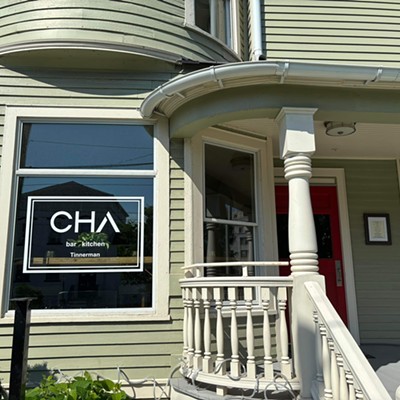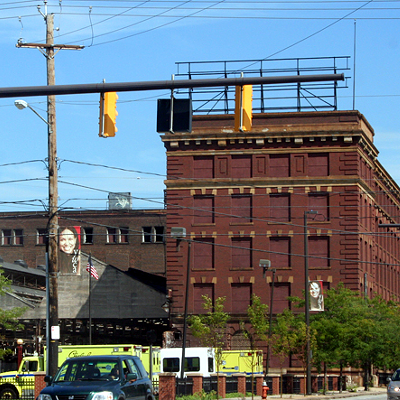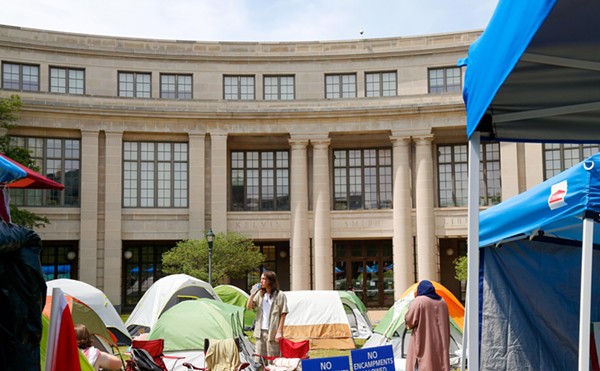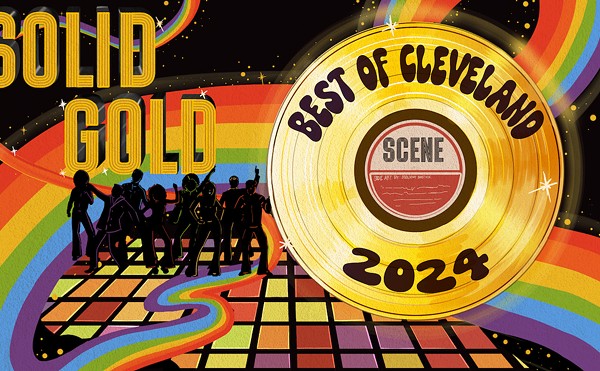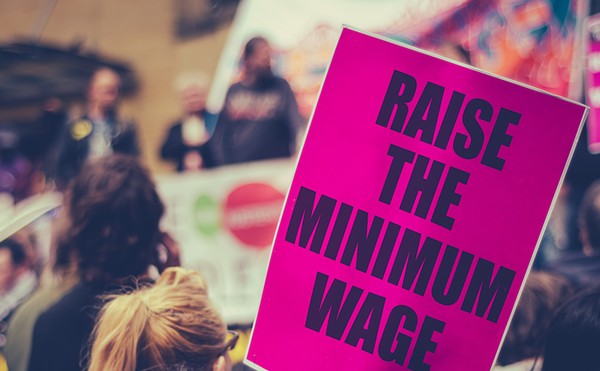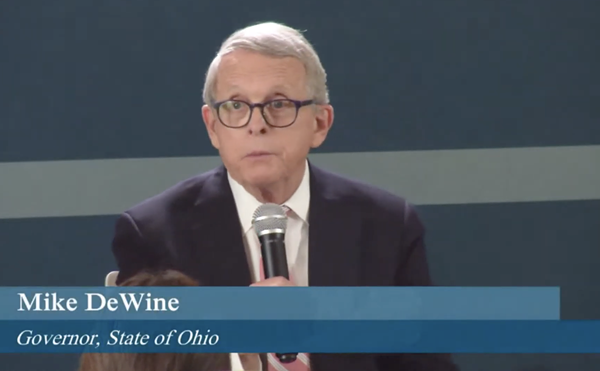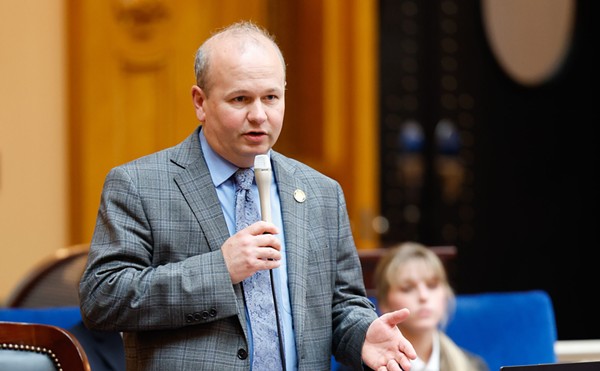Forty Years Later, a Former Cleveland Paperboy Revisits the Sexual Assault that Changed His Life
By A Survivor on Mon, Nov 21, 2016 at 9:10 am
[
{
"name": "Ad - NativeInline - Injected",
"component": "38482495",
"insertPoint": "3",
"requiredCountToDisplay": "5"
},{
"name": "Real 1 Player (r2) - Inline",
"component": "38482494",
"insertPoint": "2/3",
"requiredCountToDisplay": "9"
}
]
Page 2 of 2
Apparently because the money in the collection box was dwindling, the route manager said something to my mother.
When you mess up at a job, does your boss go to your mother? Why couldn’t he have asked me about it? He knew where I was every morning.
On a Saturday, my father, who rarely said much of anything to me, and who, because his history of drunken anger, made me nervous and uncomfortable, said something to me about going collecting.
Maybe my father thought that my mother had told me that he was going to take me collecting – she hadn’t. Maybe he thought that I had asked for help – I also hadn’t done that.
My mother also hadn’t said anything to me about knowing that I was messing up the paper route.
The next thing I knew, I was alone in the latest used car driven by my father. He said nothing. I was panicking, but tried not to make any motions to reveal how uncomfortable I was.
As we went door-to-door, my father explained in few words how I should collect, how I should mark the collection book, how I needed to collect a certain amount of money every week to pay for the newspapers, and how all of the money after that was mine to keep. It was as if he didn’t know that I had already been doing it for months.
We got to the building where the criminal lived.
The collection card my father held showed that the next customer hadn’t paid in weeks. My dad was extra sure that we knocked on that door.
The criminal opened his door. I stepped back. Seeing me, he instantly looked agitated. As if he were identifying a suspect, he pointed to me and said loudly in an accusatory tone, “There he is!” Then he went on to tell my father about how his newspaper is always a mess, torn, wrinkled, or wet.
The man didn’t seem to know or care that he was talking to my father.
I stood with my heart racing as I thought he was going to charge after me.
I thought that maybe he would do something to my father, who was a strong man, but seemed short compared to the criminal.
As if my father didn’t seem to notice how angry the criminal was, my father told him how much he owed.
The guy was not having it. My father listened while holding the collection book and looked at me as if he didn’t know what to say.
My father said something about how the guy didn’t have to pay. My father asked him if he still wanted the newspaper. He said that he did, as if the question were absurd. My father marked off all of the weeks that were not paid.
The agreement made me wonder if my father had noticed that before we went to the door that I seemed nervous and fidgety. Also, even if I had skipped the delivery, or had put damaged newspapers at the guy’s door, didn’t my father notice that the criminal’s anger was far beyond reasonable? Did my father have any concern about his son having to deal with that sort of aggression from a tall, strong, middle-aged man?
Without my father saying anything about what had just happened, we went to the next door. I felt let down, frustrated, and confused.
If anything, I felt disappointed. Was my father afraid of the guy? Was my father not the strong, tough, bullheaded, Irish factory worker he seemed to be?
Going collecting with my father that evening remains the most time I had ever spent with him, and the most he had ever spoken directly to me.
From then on, my perception of my father changed. I became another teenage boy silently critical of his father. I avoided him.
***
After school one day, a husky-voiced neighborhood girl a year older than me asked me if I would walk home with her. I told her that I had been taking a different route home from school because a man in the apartment building where I delivered newspapers wouldn’t leave me alone.
I didn’t tell her what happened.
As we approached the apartment complex, I saw the criminal raking the lawn. How convenient for him to be there at the time all of the children passed on their way home from school.
He saw me and paused. His face contorted into anger.
The husky-voiced girl started shouting things to him like, “Fag!” “Leave my friend alone, you fag!” and, “Stupid fag!”
I didn’t know what to do other than to keep walking alongside the girl.
I had the awful feeling that she was making things far worse.
The criminal looked at me as if he were ready to kill me.
I became friends with a boy in school who was tall, strong, popular, adored by girls, and had a paper route. I told him that a man on my route wouldn’t leave me alone. I think I gave my friend the impression that the guy was trying to steal my collection money.
My friend came up with a plan that he would collect my route one night to see if the guy tried to do anything to him. My friend seemed to think of it as entertaining. But he didn’t know the details, and I didn’t know how to tell him.
I met up with my friend and another boy on a Wednesday evening. We were on bikes.
From a distance in the parking lot, I watched with the other boy. My friend went into the building. The criminal exited the building. Cars in the parking lot blocked our view, but we could tell he was doing something. He then went inside. Then my friend exited, looked around, and then walked across the parking lot to us.
The criminal stole my friend’s bike.
I didn’t know what to say or do. My friend seemed to brush it off as if it were funny.
My friend couldn’t keep collecting for me. I had to do it. And I had to wake up every morning to deliver the newspaper.
The criminal continued bothering me, showing up around various places in the apartment complex.
Again, I was falling behind in the collections.
Before the man ruined things, I could easily say that I was feeling the best I had ever felt about myself. I learned how to read, was getting better grades, was doing my job, and making some money – including money that sometimes helped my mother purchase food.
Then, it became frightening, stressful, frustrating, and dangerous.
I didn’t want to do it anymore. I was worn down.
One morning after school let out for the summer, I went to deliver papers, but didn’t. I left the bundles sitting on the sidewalk.
When I arrived home, my mother saw me. She said something about the paper route. Apparently the route manager had called. As if she were an irritating pest, I said that I wasn’t going to do it anymore.
I went up to my room and sat crying on my bed.
Nobody mentioned the paper route to me again.
***
That summer became a surreal feeling of being untethered. I went from having a schedule, responsibilities, and discipline, to having none. Nobody seemed to pay attention to or expressed any interest about where I was, what I was doing, when I woke up or went to bed, what I ate or wore, who I spent time with, or what I thought. It was like being invisible in the house.
Within days, I was hanging out with kids who drank, smoked weed, stayed up late, or all night.
Inappropriate teenage behavior became my new normal. I began swearing. Not that teenage boys don’t swear, but my switch to talking that way was sudden, constant, and moronic. I became a disjointed, weird, socially awkward version of a jaded teenager feeling like he was an unwanted mistake, and didn’t matter.
Adult males became suspect. I was aware of them like a person would be while in the presence of aggressive, feral dogs. I’d get a sense of panic if I were around men. Avoidance strategies became a minor obsession. I crossed streets or suddenly switched paths to avoid men. When I saw my friends’ fathers, I’d say little or nothing.
Sometimes there would be a comment, like, “What’s wrong with that boy?” Any kind of recognition or questioning of my behavior would induce anxiety. I was always aware of myself, my movements, and tone of voice.
On top of that, my body was changing, which was confusing enough. Especially since nobody talked to me about it, and it seemed unmentionable to the point of shame, disgust, and confusion.
Living by what seemed like no rules, I drifted around like some sort of wild boy in tattered clothes, and with untamed hair.
Then summer was over and it was back to school. My grades went down. My parents didn’t say anything about that, either.
Food became an issue. Either I ate too little or I ate too much, then got rid of it by forcing myself to vomit. I got so skinny that I rolled my pants at my waist. Skinny was good, I thought.
One day, with concern in her voice, some girl asked what happened to me, that I seemed like a totally different person. Trying to diffuse the situation, I kind of nervously laughed. She said it seems like something is wrong with me. She asked if my parents cared, or if anyone cared about me. I said, “No.”
I got into several school fights that seemed to explode out of nothing. I wasn’t one of the tough kids. But sometimes I would get a fierce rush and pound on some poor kid for the slightest reason.
One night out with drunk and stoned kids, I made out with a girl from an all-girl Catholic school. It was talked about in school, which I thought was cool. Her mother heard about it. The girl was forbidden from seeing me. That bothered me. I was the type that Moms didn’t want near their daughters.
I was a bad boy.
I got a reputation for getting drunk. When some other school held a social with a DJ, I got drunk and stoned with other kids. At some point, I passed out on the dance floor. When I came to, I was surrounded by kids looking down at me. I popped up and pretended I was okay. At another of those school dances, I got so drunk that I began passing out while at the urinal in the bathroom. A strong boy quickly pushed me up against the wall and held me there until I regained my balance.
While walking home drunk one night in freezing cold, I opened the door of a car in a pub parking lot and urinated all over the inside. Then went on my way.
***
I felt lost and had no goals. There was nobody I looked up to, in the media or otherwise. TV was especially unreal to my reality as it presented smiley, happy, groomed boys my age that I couldn’t relate to: Donny Osmond, Shawn Cassidy, Andy Gibb, and Leif Garret. My existence was rotted.
For money, I’d do stuff for old people in the neighborhood, shoveling snow, raking leaves, cutting lawns, and digging gardens.
I never spent the money on clothes. If I wanted new clothes, I’d shoplift. Nobody ever asked me where I got the occasional new jeans, shirts, jackets, or shoes.
If I wanted to get drunk, I’d snag a bottle from a liquor store, or hang with the kids who had weed or booze. Sometimes we’d pool our money and get some adult going into a liquor store to buy us rum, wine, or beer.
In the spring, a year after I had given up my paper route, a friend of my mother’s came to visit from Michigan. She asked me, “Are you ready?” I didn’t know what she meant. It turned out that she was there to take me to live with her and her husband. I had no knowledge of the arrangement. Turning to my mother, who rarely spoke to me, I gave her a questioning snarl. She said that it would be better for me to go live in Michigan, since I didn’t get along with my brothers, and I had no friends. Not that she knew how I spent my time away from the house.
I was weary of adults. Unfortunately, I wouldn’t leave with the woman.
Later that day, my father came home, saw me, and asked my mother, “What’s he still doing here?”
Not exactly a self-esteem builder.
Other than for food, showering, and to wash and change clothes, I avoided the house, which was sometimes suddenly violent, my brothers behaving like my father used to. As the youngest and weakest, I was often the punching bag. I began sleeping in places like the backyard, an abandoned car, on a neighbor’s back porch, or church steps.
I often went without eating meals. I often ate the berries and fruits growing in nearby woods that had once been an orchard. I also had kept some level of a vegetable garden growing in the backyard, and ate raw vegetables from that. Sometimes neighborhood people would give me food.
I had stayed away from the house so much and paid so little attention that it took me days to realize that one of my brothers was gone. By overhearing a conversation, I found out that he had been put in a mental hospital, where he stayed for several months. Another time it took me weeks to realize that one of my brothers had left on some sort of meandering road trip and ended up staying away.
During the summer after tenth grade, a girl on the next street started selling little black pills. I would take one and do things like go biking and walking for many hours. Sometimes I took two or three pills at a time. I got skinnier. Nobody seemed to notice.
When I couldn’t get more pills I spent three lousy days in bed. Drug withdrawal is not fun, especially when you don’t know what is happening and there is nobody to ask or tell.
***
In December when I was 16, after a brutal experience with a few of my brothers, I hitchhiked to California. For two weeks, nobody hit me or called me names. Random people who picked me up fed me, gave me safe places to sleep, and talked nicely with me for hours, which I had never before experienced. In San Diego I saw the ocean and people in it surfing. It was like a dream for a teenage hitchhiker from Ohio.
Not knowing what to do, and thinking that it was important to graduate high school, I hitchhiked back to Ohio.
I heard my mother say that my father would never talk to me again.
One chilly day I sat in the kitchen while listening to music on the radio. My father walked in and said only that after I graduate high school he didn’t want to see my face, hear my voice, or know anything about me ever again. I said, “Okay.”
I got a Saturday job at a deli in downtown Cleveland, taking the train to get there.
My art teacher got me a summer scholarship to the Cleveland Institute of Art. One day, a teacher at the Institute spoke to me during a break when nobody else was around, asking me about my art project. I got panicky with the thought that he was going to do something dumb. Even though he did nothing wrong, I never returned to classes.
Through twelfth grade, I worked at a burger joint under the cloud of not knowing what I would do after graduation. The cynical kids at school voted me “most likely to fail.”
Nobody in my family showed up for my high school graduation. I was drunk.
After the ceremony, I wandered around the crowds of students with their families. Nobody seemed to notice me. Nobody congratulated me, or asked me what I was going to do after graduation.
For nearly a year after high school, I worked in factories, gave my mother rent money, bought a used car, and saved money to leave.
One day I heard my father say loudly to my mother, as if I was meant to hear, “What is he still doing living here?” Not something I had ever heard him say about my brothers.
In the spring, I left Cleveland. Nobody said goodbye to me. I have never returned.
I tried talking with my father on the phone once from California. He asked who he was talking with. When I said my name, he hung up.
Ten years later when doctors told me I was dying from kidney failure, I called the house. I ended up talking with my father. He didn’t hang up. He sounded much older, relaxed, and easygoing; we mildly talked about general things. He had stopped drinking and was retired from the steel mill.
He wrote me a letter apologizing for hanging up on me ten years prior. He also apologized for not protecting me when I was young. He said I had a good attitude.
He died soon after writing that letter.
My mother visited me once when I was in my thirties. I was not in a good place. It was not easy being around her. I kept conversations light, and showed her around museums, parks, views, and piers. We played Scrabble on a picnic table by the beach, which turned out to be her favorite thing to do the whole trip.
I wrote her a letter once mentioning a little detail about what happened to me on the paper route. She didn’t respond to that.
She has since died.
***
It is only in the last year that I have put much thought into considering the gravity of what the criminal did to me. Therapy has helped me to realize how much his actions have undermined my life. The experience was key to my downfall as a teenager, propelling me into disturbed behavior and a more troubled existence. It halted what were ongoing improvements in my life, tarnished my trust, warped my ability to relate to people, brought on a distorted sense of self and sexuality, and left me with ongoing nightmares.
Many times, I’ve moved furniture, torn apart rooms, and damaged things in my sleep — and injured myself doing so, including cuts, bruises, breaking my nose, spraining my wrists, and even knocking myself out by falling against a cabinet and waking up with half my temple and cheek swollen and my neck bleeding.
When I had an apartment on the beach, I woke up one night standing on the beach while looking up at the stars. That might not be such a bad thing. But, once, in a confused state of panic while still asleep, I put my hand through the glass of a window. I woke up back in bed with blood all over the place, and with a vague memory of what I had done, as if it were only a dream of trying to frantically escape from a room. But dreams don’t result in trips to the hospital to get anesthesia and stitches. Even today, things reminding me of what that man did can trigger anxiety, frustration, and night terrors. Girlfriends have told me that I’m nearly impossible to sleep next to. Doctors have told me that I have post-traumatic stress disorder.
I understand what it means when I read about people who experienced childhood sexual assault. They can feel damaged, used, and disposed of, have low self-esteem, often have fractured relationships, and live troubled lives. Many homeless people and addicts have histories of being victims of domestic abuse and sexual assault – especially homeless youth. I had been homeless numerous times in my 20s.
Most often, nobody is held accountable in these sort of assault cases. It is doubtful that the man who violated me is still alive, as he’d be over 90 years old.
Even if he were alive, laws relating to statute of limitations governing sexual assault cases prevent any sort of legal action.
As it has been said, while there have been cases of a person accidently killing someone, and the killer can always be prosecuted, nobody accidently rapes someone, but the rapist might not be prosecuted – because the statute of limitations prevents it.
A middle-aged man doesn’t accidently sexually brutalize and then spend more than a month stalking and threatening a newspaper boy. His actions were calculated, deviant, violent, heinous crimes committed against a 13-year-old boy who was working for pocket change, and helping to support his family, by delivering for one of the largest newspapers in the country.
Like other pubescent newspaper carriers, I helped build the newspaper trade into a multi-billion-dollar industry. The newspaper company got its money. And I got violently molested and then stalked by a predatory pedophile, then was never asked why I had abandoned my route.
A person in the condition I was in could take years to realize how to deal with what happened to them – if ever. Trying to not think of it doesn’t work, as news stories reporting other cases of what adults have done to boys continually remind me of what happened to me.
Canadian hockey players Sheldon Kennedy and Theoren Fleury, who as teenagers were molested by their coach, have written books describing the shattered parts of their lives relating to the repercussions of what that man did.
As I was writing this, news broke that former Republican Speaker of the House Congressman Dennis Hastert had molested at least four teenage boys while he was employed as a high school wrestling coach during the 1960s and 1970s. Later, Hastert paid one of the victims something in the range of $3.5 million to keep him quiet. Another of Hastert’s victims led a shattered life, and died young.
If you are a child in any sort of situation similar to what I was in, consider contacting Bikers Against Child Abuse International (BACAWorld.org). Also, there is ChildHelp.org. Although it was founded to aid survivors of priest abuse, S.N.A.P. can also be of help (SNAPNetwork.org). Those interested in supporting the organizations can make donations through the Web sites.
The author requested that Scene not publish his real name.
When you mess up at a job, does your boss go to your mother? Why couldn’t he have asked me about it? He knew where I was every morning.
On a Saturday, my father, who rarely said much of anything to me, and who, because his history of drunken anger, made me nervous and uncomfortable, said something to me about going collecting.
Maybe my father thought that my mother had told me that he was going to take me collecting – she hadn’t. Maybe he thought that I had asked for help – I also hadn’t done that.
My mother also hadn’t said anything to me about knowing that I was messing up the paper route.
The next thing I knew, I was alone in the latest used car driven by my father. He said nothing. I was panicking, but tried not to make any motions to reveal how uncomfortable I was.
As we went door-to-door, my father explained in few words how I should collect, how I should mark the collection book, how I needed to collect a certain amount of money every week to pay for the newspapers, and how all of the money after that was mine to keep. It was as if he didn’t know that I had already been doing it for months.
We got to the building where the criminal lived.
The collection card my father held showed that the next customer hadn’t paid in weeks. My dad was extra sure that we knocked on that door.
The criminal opened his door. I stepped back. Seeing me, he instantly looked agitated. As if he were identifying a suspect, he pointed to me and said loudly in an accusatory tone, “There he is!” Then he went on to tell my father about how his newspaper is always a mess, torn, wrinkled, or wet.
The man didn’t seem to know or care that he was talking to my father.
I stood with my heart racing as I thought he was going to charge after me.
I thought that maybe he would do something to my father, who was a strong man, but seemed short compared to the criminal.
As if my father didn’t seem to notice how angry the criminal was, my father told him how much he owed.
The guy was not having it. My father listened while holding the collection book and looked at me as if he didn’t know what to say.
My father said something about how the guy didn’t have to pay. My father asked him if he still wanted the newspaper. He said that he did, as if the question were absurd. My father marked off all of the weeks that were not paid.
The agreement made me wonder if my father had noticed that before we went to the door that I seemed nervous and fidgety. Also, even if I had skipped the delivery, or had put damaged newspapers at the guy’s door, didn’t my father notice that the criminal’s anger was far beyond reasonable? Did my father have any concern about his son having to deal with that sort of aggression from a tall, strong, middle-aged man?
Without my father saying anything about what had just happened, we went to the next door. I felt let down, frustrated, and confused.
If anything, I felt disappointed. Was my father afraid of the guy? Was my father not the strong, tough, bullheaded, Irish factory worker he seemed to be?
Going collecting with my father that evening remains the most time I had ever spent with him, and the most he had ever spoken directly to me.
From then on, my perception of my father changed. I became another teenage boy silently critical of his father. I avoided him.
***
After school one day, a husky-voiced neighborhood girl a year older than me asked me if I would walk home with her. I told her that I had been taking a different route home from school because a man in the apartment building where I delivered newspapers wouldn’t leave me alone.
I didn’t tell her what happened.
As we approached the apartment complex, I saw the criminal raking the lawn. How convenient for him to be there at the time all of the children passed on their way home from school.
He saw me and paused. His face contorted into anger.
The husky-voiced girl started shouting things to him like, “Fag!” “Leave my friend alone, you fag!” and, “Stupid fag!”
I didn’t know what to do other than to keep walking alongside the girl.
I had the awful feeling that she was making things far worse.
The criminal looked at me as if he were ready to kill me.
I became friends with a boy in school who was tall, strong, popular, adored by girls, and had a paper route. I told him that a man on my route wouldn’t leave me alone. I think I gave my friend the impression that the guy was trying to steal my collection money.
My friend came up with a plan that he would collect my route one night to see if the guy tried to do anything to him. My friend seemed to think of it as entertaining. But he didn’t know the details, and I didn’t know how to tell him.
I met up with my friend and another boy on a Wednesday evening. We were on bikes.
From a distance in the parking lot, I watched with the other boy. My friend went into the building. The criminal exited the building. Cars in the parking lot blocked our view, but we could tell he was doing something. He then went inside. Then my friend exited, looked around, and then walked across the parking lot to us.
The criminal stole my friend’s bike.
I didn’t know what to say or do. My friend seemed to brush it off as if it were funny.
My friend couldn’t keep collecting for me. I had to do it. And I had to wake up every morning to deliver the newspaper.
The criminal continued bothering me, showing up around various places in the apartment complex.
Again, I was falling behind in the collections.
Before the man ruined things, I could easily say that I was feeling the best I had ever felt about myself. I learned how to read, was getting better grades, was doing my job, and making some money – including money that sometimes helped my mother purchase food.
Then, it became frightening, stressful, frustrating, and dangerous.
I didn’t want to do it anymore. I was worn down.
One morning after school let out for the summer, I went to deliver papers, but didn’t. I left the bundles sitting on the sidewalk.
When I arrived home, my mother saw me. She said something about the paper route. Apparently the route manager had called. As if she were an irritating pest, I said that I wasn’t going to do it anymore.
I went up to my room and sat crying on my bed.
Nobody mentioned the paper route to me again.
***
That summer became a surreal feeling of being untethered. I went from having a schedule, responsibilities, and discipline, to having none. Nobody seemed to pay attention to or expressed any interest about where I was, what I was doing, when I woke up or went to bed, what I ate or wore, who I spent time with, or what I thought. It was like being invisible in the house.
Within days, I was hanging out with kids who drank, smoked weed, stayed up late, or all night.
Inappropriate teenage behavior became my new normal. I began swearing. Not that teenage boys don’t swear, but my switch to talking that way was sudden, constant, and moronic. I became a disjointed, weird, socially awkward version of a jaded teenager feeling like he was an unwanted mistake, and didn’t matter.
Adult males became suspect. I was aware of them like a person would be while in the presence of aggressive, feral dogs. I’d get a sense of panic if I were around men. Avoidance strategies became a minor obsession. I crossed streets or suddenly switched paths to avoid men. When I saw my friends’ fathers, I’d say little or nothing.
Sometimes there would be a comment, like, “What’s wrong with that boy?” Any kind of recognition or questioning of my behavior would induce anxiety. I was always aware of myself, my movements, and tone of voice.
On top of that, my body was changing, which was confusing enough. Especially since nobody talked to me about it, and it seemed unmentionable to the point of shame, disgust, and confusion.
Living by what seemed like no rules, I drifted around like some sort of wild boy in tattered clothes, and with untamed hair.
Then summer was over and it was back to school. My grades went down. My parents didn’t say anything about that, either.
Food became an issue. Either I ate too little or I ate too much, then got rid of it by forcing myself to vomit. I got so skinny that I rolled my pants at my waist. Skinny was good, I thought.
One day, with concern in her voice, some girl asked what happened to me, that I seemed like a totally different person. Trying to diffuse the situation, I kind of nervously laughed. She said it seems like something is wrong with me. She asked if my parents cared, or if anyone cared about me. I said, “No.”
I got into several school fights that seemed to explode out of nothing. I wasn’t one of the tough kids. But sometimes I would get a fierce rush and pound on some poor kid for the slightest reason.
One night out with drunk and stoned kids, I made out with a girl from an all-girl Catholic school. It was talked about in school, which I thought was cool. Her mother heard about it. The girl was forbidden from seeing me. That bothered me. I was the type that Moms didn’t want near their daughters.
I was a bad boy.
I got a reputation for getting drunk. When some other school held a social with a DJ, I got drunk and stoned with other kids. At some point, I passed out on the dance floor. When I came to, I was surrounded by kids looking down at me. I popped up and pretended I was okay. At another of those school dances, I got so drunk that I began passing out while at the urinal in the bathroom. A strong boy quickly pushed me up against the wall and held me there until I regained my balance.
While walking home drunk one night in freezing cold, I opened the door of a car in a pub parking lot and urinated all over the inside. Then went on my way.
***
I felt lost and had no goals. There was nobody I looked up to, in the media or otherwise. TV was especially unreal to my reality as it presented smiley, happy, groomed boys my age that I couldn’t relate to: Donny Osmond, Shawn Cassidy, Andy Gibb, and Leif Garret. My existence was rotted.
For money, I’d do stuff for old people in the neighborhood, shoveling snow, raking leaves, cutting lawns, and digging gardens.
I never spent the money on clothes. If I wanted new clothes, I’d shoplift. Nobody ever asked me where I got the occasional new jeans, shirts, jackets, or shoes.
If I wanted to get drunk, I’d snag a bottle from a liquor store, or hang with the kids who had weed or booze. Sometimes we’d pool our money and get some adult going into a liquor store to buy us rum, wine, or beer.
In the spring, a year after I had given up my paper route, a friend of my mother’s came to visit from Michigan. She asked me, “Are you ready?” I didn’t know what she meant. It turned out that she was there to take me to live with her and her husband. I had no knowledge of the arrangement. Turning to my mother, who rarely spoke to me, I gave her a questioning snarl. She said that it would be better for me to go live in Michigan, since I didn’t get along with my brothers, and I had no friends. Not that she knew how I spent my time away from the house.
I was weary of adults. Unfortunately, I wouldn’t leave with the woman.
Later that day, my father came home, saw me, and asked my mother, “What’s he still doing here?”
Not exactly a self-esteem builder.
Other than for food, showering, and to wash and change clothes, I avoided the house, which was sometimes suddenly violent, my brothers behaving like my father used to. As the youngest and weakest, I was often the punching bag. I began sleeping in places like the backyard, an abandoned car, on a neighbor’s back porch, or church steps.
I often went without eating meals. I often ate the berries and fruits growing in nearby woods that had once been an orchard. I also had kept some level of a vegetable garden growing in the backyard, and ate raw vegetables from that. Sometimes neighborhood people would give me food.
I had stayed away from the house so much and paid so little attention that it took me days to realize that one of my brothers was gone. By overhearing a conversation, I found out that he had been put in a mental hospital, where he stayed for several months. Another time it took me weeks to realize that one of my brothers had left on some sort of meandering road trip and ended up staying away.
During the summer after tenth grade, a girl on the next street started selling little black pills. I would take one and do things like go biking and walking for many hours. Sometimes I took two or three pills at a time. I got skinnier. Nobody seemed to notice.
When I couldn’t get more pills I spent three lousy days in bed. Drug withdrawal is not fun, especially when you don’t know what is happening and there is nobody to ask or tell.
***
In December when I was 16, after a brutal experience with a few of my brothers, I hitchhiked to California. For two weeks, nobody hit me or called me names. Random people who picked me up fed me, gave me safe places to sleep, and talked nicely with me for hours, which I had never before experienced. In San Diego I saw the ocean and people in it surfing. It was like a dream for a teenage hitchhiker from Ohio.
Not knowing what to do, and thinking that it was important to graduate high school, I hitchhiked back to Ohio.
I heard my mother say that my father would never talk to me again.
One chilly day I sat in the kitchen while listening to music on the radio. My father walked in and said only that after I graduate high school he didn’t want to see my face, hear my voice, or know anything about me ever again. I said, “Okay.”
I got a Saturday job at a deli in downtown Cleveland, taking the train to get there.
My art teacher got me a summer scholarship to the Cleveland Institute of Art. One day, a teacher at the Institute spoke to me during a break when nobody else was around, asking me about my art project. I got panicky with the thought that he was going to do something dumb. Even though he did nothing wrong, I never returned to classes.
Through twelfth grade, I worked at a burger joint under the cloud of not knowing what I would do after graduation. The cynical kids at school voted me “most likely to fail.”
Nobody in my family showed up for my high school graduation. I was drunk.
After the ceremony, I wandered around the crowds of students with their families. Nobody seemed to notice me. Nobody congratulated me, or asked me what I was going to do after graduation.
For nearly a year after high school, I worked in factories, gave my mother rent money, bought a used car, and saved money to leave.
One day I heard my father say loudly to my mother, as if I was meant to hear, “What is he still doing living here?” Not something I had ever heard him say about my brothers.
In the spring, I left Cleveland. Nobody said goodbye to me. I have never returned.
I tried talking with my father on the phone once from California. He asked who he was talking with. When I said my name, he hung up.
Ten years later when doctors told me I was dying from kidney failure, I called the house. I ended up talking with my father. He didn’t hang up. He sounded much older, relaxed, and easygoing; we mildly talked about general things. He had stopped drinking and was retired from the steel mill.
He wrote me a letter apologizing for hanging up on me ten years prior. He also apologized for not protecting me when I was young. He said I had a good attitude.
He died soon after writing that letter.
My mother visited me once when I was in my thirties. I was not in a good place. It was not easy being around her. I kept conversations light, and showed her around museums, parks, views, and piers. We played Scrabble on a picnic table by the beach, which turned out to be her favorite thing to do the whole trip.
I wrote her a letter once mentioning a little detail about what happened to me on the paper route. She didn’t respond to that.
She has since died.
***
It is only in the last year that I have put much thought into considering the gravity of what the criminal did to me. Therapy has helped me to realize how much his actions have undermined my life. The experience was key to my downfall as a teenager, propelling me into disturbed behavior and a more troubled existence. It halted what were ongoing improvements in my life, tarnished my trust, warped my ability to relate to people, brought on a distorted sense of self and sexuality, and left me with ongoing nightmares.
Many times, I’ve moved furniture, torn apart rooms, and damaged things in my sleep — and injured myself doing so, including cuts, bruises, breaking my nose, spraining my wrists, and even knocking myself out by falling against a cabinet and waking up with half my temple and cheek swollen and my neck bleeding.
When I had an apartment on the beach, I woke up one night standing on the beach while looking up at the stars. That might not be such a bad thing. But, once, in a confused state of panic while still asleep, I put my hand through the glass of a window. I woke up back in bed with blood all over the place, and with a vague memory of what I had done, as if it were only a dream of trying to frantically escape from a room. But dreams don’t result in trips to the hospital to get anesthesia and stitches. Even today, things reminding me of what that man did can trigger anxiety, frustration, and night terrors. Girlfriends have told me that I’m nearly impossible to sleep next to. Doctors have told me that I have post-traumatic stress disorder.
I understand what it means when I read about people who experienced childhood sexual assault. They can feel damaged, used, and disposed of, have low self-esteem, often have fractured relationships, and live troubled lives. Many homeless people and addicts have histories of being victims of domestic abuse and sexual assault – especially homeless youth. I had been homeless numerous times in my 20s.
Most often, nobody is held accountable in these sort of assault cases. It is doubtful that the man who violated me is still alive, as he’d be over 90 years old.
Even if he were alive, laws relating to statute of limitations governing sexual assault cases prevent any sort of legal action.
As it has been said, while there have been cases of a person accidently killing someone, and the killer can always be prosecuted, nobody accidently rapes someone, but the rapist might not be prosecuted – because the statute of limitations prevents it.
A middle-aged man doesn’t accidently sexually brutalize and then spend more than a month stalking and threatening a newspaper boy. His actions were calculated, deviant, violent, heinous crimes committed against a 13-year-old boy who was working for pocket change, and helping to support his family, by delivering for one of the largest newspapers in the country.
Like other pubescent newspaper carriers, I helped build the newspaper trade into a multi-billion-dollar industry. The newspaper company got its money. And I got violently molested and then stalked by a predatory pedophile, then was never asked why I had abandoned my route.
A person in the condition I was in could take years to realize how to deal with what happened to them – if ever. Trying to not think of it doesn’t work, as news stories reporting other cases of what adults have done to boys continually remind me of what happened to me.
Canadian hockey players Sheldon Kennedy and Theoren Fleury, who as teenagers were molested by their coach, have written books describing the shattered parts of their lives relating to the repercussions of what that man did.
As I was writing this, news broke that former Republican Speaker of the House Congressman Dennis Hastert had molested at least four teenage boys while he was employed as a high school wrestling coach during the 1960s and 1970s. Later, Hastert paid one of the victims something in the range of $3.5 million to keep him quiet. Another of Hastert’s victims led a shattered life, and died young.
If you are a child in any sort of situation similar to what I was in, consider contacting Bikers Against Child Abuse International (BACAWorld.org). Also, there is ChildHelp.org. Although it was founded to aid survivors of priest abuse, S.N.A.P. can also be of help (SNAPNetwork.org). Those interested in supporting the organizations can make donations through the Web sites.
The author requested that Scene not publish his real name.
SCENE Supporters make it possible to tell the Cleveland stories you won’t find elsewhere.
Become a supporter today.
Scroll to read more Cleveland News articles
Newsletters
Join Cleveland Scene Newsletters
Subscribe now to get the latest news delivered right to your inbox.

